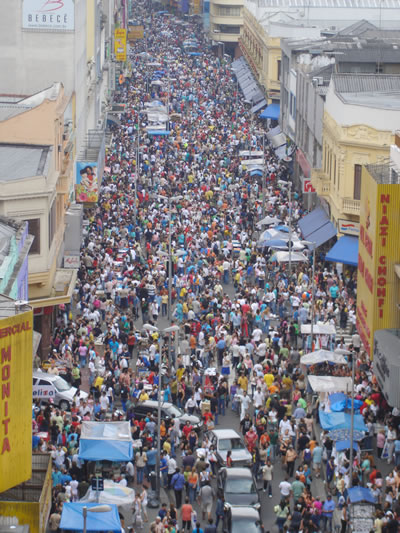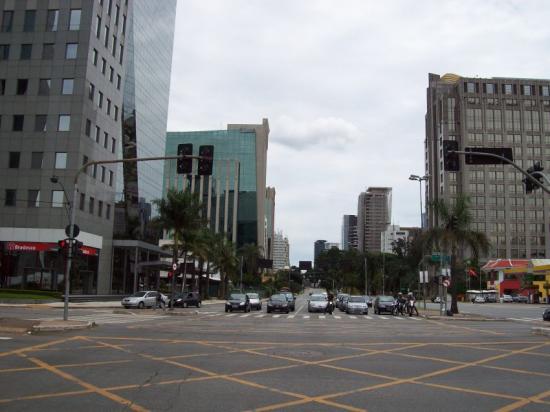Until 20 years ago Brazil was an isolated country, with little political contact with the rest of the world. The almost apathetic stance Brazil took with world affairs is fast changing.
As globalization progresses, it is impossible for a country the size of Brazil, to remain isolated. Accordingly, the opening of the Brazilian market in 1991 during the Collor administration has brought many benefits to the Brazilians. Products that were virtually inaccessible to the Brazilian middle class began to be imported and then manufactured here.
The opening of Brazilian economy was not limited to just the entry of new products or the export of Brazilian products to new markets. Gradually the geopolitical importance of Brazil has grown and skilful, perhaps due to the liberalization of the economy. Brazilian diplomacy is increasing her participation in globally important issues.

Brazilian soldiers in Haiti.
Brazilian troops are present in Haiti and East Timor with the objective of maintaining peace in those countries. Brazil is seen by the United States as the main partner in South America (in this case the president Lula could be seen as a mediator between Hugo Chávez and the U.S. government). Not to mention that Brazil’s performance, together with India in the negotiations of the Doha Round, has worried the leaders of other developed countries.
However, Brazil is not recognized as a major global player. That is perhaps why the Brazilian diplomatic efforts are concentrated in the conflict in Gaza.
The Minister of Foreign Affairs of Brazil, Celso Amorim, was sent to the Middle East by President Lula with the aim of contributing to international efforts and achieve certain truce in the Gaza Strip. The mission of Amorim is an extra kick to give international diplomacy to try and convince Hamas and Israel to accept the resolution of the UN Security Council and close the conflict; at least temporarily.

25 March street in Sao Paulo downtown: Lebanese, Syrians, Jews, Chinese, Korean (and many others) traders side by side.
Should Brazil be involved in this raging conflict?
Firstly, in Brazil about 12 million Arab immigrants (and descendants) and 200 thousand Jews live harmoniously. Of course, one could argue that this only happens because the Brazilian territory is huge. However, most Arabs and Jews living in Brazil are concentrated in São Paulo state (state that has only 7% of the country).
Secondly, Brazil, since the Second World War, has not participated in any war. For those who do not know, Brazil shares borders with 10 other countries of South America, many with tumultuous internal situations.
Third, Brazil is not a former colonial power. It was not an actor in the Cold War, and does not even need the oil fields of the Middle East. Therefore, the Brazilian government’s actions are not connected to the defence of economic interests (for those who do not know, Brazil is self-sufficient in oil).
Of course Brazil has economic interests in that region, but are not directly linked to the issue of oil. The Brazilian government convinces other countries that form the Mercosur to accept Israel as a partner of the economic bloc. On the other hand, Iran and Brazil
are forging closer relations everyday.

Vila Olímpia: in this region is being built what many call the “third center” of Sao Paulo.
The growth of the financial capital of Brazil was only possible due to ethnic and cultural diversity of São Paulo.
However, saying that the interests of Brazil are strictly economic would be a lie. What could be said legitimately is that Brazil is trying to show the world that it would be able to occupy a permanent seat in the UN Security Council.
But even that statement would not represent the true wishes of the government and the Brazilian society. For the ordinary Brazilian, this conflict does not make any sense. Brazil is a country that was and is being built by millions of immigrants who live harmoniously side by side.
This is precisely the greatest lesson that Brazil has learned: the ethnic and cultural diversity builds and creates opportunities peacefully. While Brazil straddles between liberalization of economy, economic crisis, global conflict and ambitious export planning, ethnic and cultural diversity and peace may perhaps be the best export this South American nation could offer to the world.



